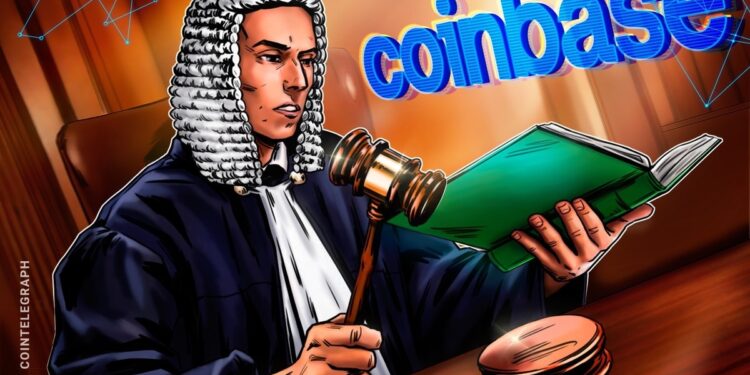The US authorities has urged the Supreme Court docket to not take up a Coinbase person’s problem in opposition to the Inside Income Service’s (IRS) effort to acquire his crypto transaction information.
In a filing dated Might 30, Solicitor Normal D. John Sauer argued that Coinbase person James Harper has no Fourth Modification proper to defend his monetary information held by the trade.
The federal government claimed that Harper “voluntarily” shared his information with Coinbase, and that the IRS adopted correct authorized procedures to acquire it by way of a judicially authorised summons.
Harper’s case facilities on a 2016 IRS investigation into widespread tax underreporting on cryptocurrency features. On the time, the IRS found a pointy hole between the tens of millions of Coinbase customers buying and selling Bitcoin (BTC) and the comparatively few taxpayers who reported crypto features.
In response, the company obtained a so-called “John Doe” summons compelling Coinbase to show over information on high-volume prospects.
Associated: Coinbase data breach 2025: What was stolen and what you need to know
Coinbase person sues IRS over crypto information search
Harper, who traded Bitcoin on Coinbase throughout the related years, later sued, claiming that the IRS’s actions amounted to an unconstitutional search of his private information.
Decrease courts disagreed, ruling that Coinbase’s information are enterprise paperwork — not Harper’s personal papers — and that the IRS acted lawfully.
In its temporary, the federal government argued that Supreme Court docket precedent helps the IRS’s place. Citing previous instances similar to United States v. Miller, the federal government emphasised that people haven’t any affordable expectation of privateness in monetary information held by third events Coinbase.
The submitting additionally pointed to Coinbase’s personal privateness coverage, which warned customers that info may very well be shared with legislation enforcement.
“To the extent petitioner made these arguments beneath, the courtroom of appeals appropriately rejected them as each foreclosed by this Court docket’s precedent and meritless,” the federal government mentioned.
The Supreme Court docket has not but determined whether or not it’s going to hear the case. A denial would go away in place the First Circuit’s ruling in favor of the IRS.
Associated: Retired artist loses $2M in crypto to Coinbase impersonator
Coinbase suffers main information breach
On Might 15, Coinbase disclosed a data breach wherein attackers bribed buyer assist employees in India to entry delicate person info.
Stolen information included buyer names, account balances, and transaction histories. Coinbase confirmed the breach impacted roughly 1% of its month-to-month transacting customers. Amongst these affected was venture capitalist Roelof Botha, managing associate at Sequoia Capital.
Coinbase additionally faced a wave of lawsuits following the revelation. At the very least six authorized complaints have been filed on Might 15 and 16, with plaintiffs accusing the trade of failing to implement enough safety measures and mishandling its response to the breach.
Journal: Coinbase hack shows the law probably won’t protect you: Here’s why



















